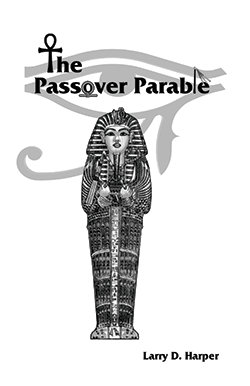God Called Moses to Be His “Mouth”
It is commonly believed that God called Moses to lead the sons of Israel out of the land of Egypt. That is true; He did. However, it is also true that God called Moses to be His “mouth,” the Prophet through whom He would speak to the sons of Israel and convey to them The Teaching of Moses. God did that in spite of Moses’ argument that he lacked the oratory skills for the job:
Then Moses said to the Lord, “Please, Lord, I have never been eloquent, neither recently nor in time past, nor since Thou hast spoken to Thy servant; for I am slow of speech and slow of tongue.” And the Lord said to him, “Who has made man’s mouth? Or who makes {him} dumb or deaf, or seeing or blind? Is it not I, the Lord? Now then go, and I, even I, will be your mouth, and teach you what you are to say.”
(Exodus 4:10–12) —NASB
Although God explained to Moses the things He had called him to teach the sons of Israel, Moses was not totally ignorant of the concepts God incorporated into The Teaching of Moses. At the time of his calling, Moses already possessed an extensive body of knowledge that made him especially useful to God and uniquely qualified him to explain the Word of God to the sons of Israel.
Believe it or not, the knowledge that God found most useful was Moses’ understanding of Egyptian religion and culture. Having been raised by Pharaoh’s daughter, Moses had been thoroughly educated in Egyptian arts, sciences, and religion:
“And Moses was educated in all the learning of the Egyptians, and he was a man of power in words and deeds.”
(Acts 7:22) —NASB
Moses’ knowledge of Egyptian religion made him the perfect candidate to be God’s “mouth” and to teach the sons of Israel the meaning and significance of the parables in which God used the beliefs and practices of the Egyptian culture—the culture to which the sons of Israel had been exposed for four hundred years—to explain His purpose in the birth, life, death, and Resurrection of Jesus Christ. That is why many of the parabolic images and Hebrew idioms that make up the parables that Moses and all the other Prophets of Israel included in their prophecies have their origin in Egyptian religion.
The key to understanding the parables of Scripture is to realize that the meaning and significance of most of the parabolic images in the parables of The Teaching of Moses derive from the religious beliefs—the mythology—of the Egyptians. However, the parables of the other Prophets of Israel do not have their origin in Egyptian culture. They are instead tied to the religious beliefs—the mythology—of the ancient Near Eastern cultures that influenced the sons of Israel after the Exodus—namely the Canaanite, Babylonian, and Greek cultures.


